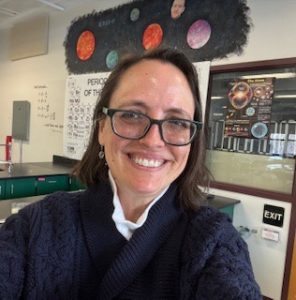What in the world is happening besides Covid-19?
A piece of amber holds the skeleton of the smallest dinosaur ever discovered. The fossil was discovered in Northern Myanmar in March. “This [fossil] was so pristine and so well-preserved, this thing was super perfect,” said Jingmai O’Connor, a paleontologist at China’s Institute of Vertebrate Paleontology and Paleoanthropology.
April 20, 2020
What in the World is Happening Besides Covid-19?
These days it’s almost impossible to tune into the news and hear about anything other than the coronavirus pandemic and its increasing toll on public health, the economy and society. While it’s true that the pandemic dominates the media because it has placed life as we know it on hold, there are a few other things happening in the world besides stay-at-home orders and skyrocketing unemployment. Here are three news stories that aren’t about Covid-19.
A new species of dinosaur, the smallest ever found, was discovered in a piece of amber in Northern Myanmar in March. “The fossil… measures just 1.5 centimeters long from the back of the head to the tip of the snout, about the width of a thumbnail. The skull’s proportions suggest that the animal was about the same size as a bee hummingbird, which would have made the newfound dinosaur lighter than a dime,” said Mark Greshko of National Geographic. The fossil was discovered by paleontologists from the Chinese University of Geosciences and was given the name Oculudentavis khaungraae by authors of a study published in the journal Nature. “Like capturing Cretaceous lightning in a bottle, this amber preserves an unprecedented snapshot of a miniature dinosaur skull with exciting new features,” said University of South Florida paleontologist, Ryan Carney. The fossil is housed at the Hupoge Amber Museum in Tengchong, China.
A series of locust swarms is sweeping over the Arabian Peninsula and Eastern Africa, causing a crisis that can endanger people and crops. The problem began with Cyclone Mekunu in 2018, which allowed locusts to thrive in the moist sand and vegetation of Arabia’s “Empty Quarter” of desert. “That’s fine, that’s quite good in itself, but just about when those conditions are drying out and the breeding is coming to an end, a second cyclone came to the area… That allowed the conditions to continue to be favourable and another generation of breeding, so instead of increasing 400-fold, [the locusts] increased 8,000-fold,” said Keith Cressman, locust forecasting expert for the UN’s Food and Agriculture Organization. The FAO has warned that the food security of 25 million people across 10 countries could be endangered by this crisis. “One swarm recently reported in Kenya covered an area the size of Luxembourg,” said Kaamil Ahmed of The Guardian. Climate change may make forecasting swarms like these much harder due to unpredictable rainfall, timing and distribution of locusts.
Bernie Sanders has suspended his campaign for the Democratic presidential nomination, making former Vice President Joe Biden the presumptive nominee. “I wish I could give you better news, but I think you know the truth, and that is that we are now some 300 delegates behind Vice President Biden, and the path toward victory is virtually impossible,” said Sanders to supporters in a livestream on April 8.
“Sanders’ departure from the race is a sharp blow to progressives, who rose up during and after the 2016 campaign and commanded the Democratic Party’s Trump era debates over issues like health care, climate change and the effects of growing economic inequality,” said CNN. Biden has already reached out to Sanders’ supporters in a bid for unity within the Democratic party.



![A piece of amber holds the skeleton of the smallest dinosaur ever discovered. The fossil was discovered in Northern Myanmar in March. “This [fossil] was so pristine and so well-preserved, this thing was super perfect,” said Jingmai O’Connor, a paleontologist at China’s Institute of Vertebrate Paleontology and Paleoanthropology.](https://cavchronline.com/wp-content/uploads/2020/04/OtherNews_MilesKeefe_News_Ready.jpg)










